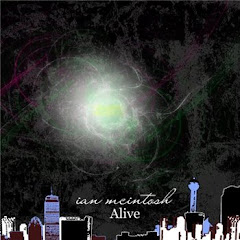December 18, 2004
The meaning at the very heart of Christmas
GEOFFREY ROWELL
THE TIMESONLINE
“SEASON’S GREETINGS” is the bland message on those Christmas cards sent by those anxious and careful not to offend the supposed religious beliefs of others or impose religion on its cultured despisers. But even a season has a reference, and the “season” is not some politically manufactured secular celebration like those that the French Revolution tried to impose on France or communism on Russia. Those were celebrations without deep human resonance and meaning. They lacked roots and have therefore withered on the branch.
Truly human celebrations can never originate from political pastiche; they are always grounded in a faith which responds and reaches out to God, and so touches in the deepest way the meaning, significance and purpose of our lives. We would not put up lights, or send cards, or give presents, or celebrate with turkey or champagne, without Jesus Christ. It is his birth which Christmas celebrates.
Of course, like all human celebrations, Christmas has drawn into itself all kinds of traditions and customs, threads which run back into the old Roman festival of the unconquered sun, or the German Christmas trees made popular by Prince Albert, and St Nicholas, a Christian bishop in south-west Turkey metamorphosed in America via the colloquial Dutch “Sinter-klaas” into the jolly, rubicund Santa Claus bringing presents with reindeer (and hence providing tourist opportunities for Lapland). All this is unsurprising, just as is the transformation of St Matthew’s magi or astrologers who came to pay homage to the infant Jesus signifying his rule and lordship over the cosmic powers which held humanity captive into “three kings from Persian lands afar”, for the prophet Isaiah had spoken of kings falling down before the promised Messiah. The human imagination is fertile, and is part of the creativity that we were given by God.
But we need always to be reminded of what is at the heart of it all. The birth of Jesus Christ, so movingly recounted in the gospels of Luke and Matthew, is a birth celebrated because of a life and a death, and a victory over death.
For Christians every Sunday is a feast of the Resurrection, and every Christian festival is always an Easter festival — and that includes Christmas. The Annunciation of Gabriel to Mary, the village girl of Nazareth, that she is to become the bearer of the Son of God, is a moment of new creation. So too is the birth at Bethlehem, and that is all fulfilled in the new life which bursts from the grave at Easter, a life in which through his life-giving Spirit we share. So the Christmas collect speaks both of the birth at Bethlehem, and of our new birth — of our being made God’s children by adoption and grace by the same life-giving Spirit which overshadowed the Blessed Virgin at the Incarnation. Christ went, as Bishop Lancelot Andrewes liked to say, “to the very ground-sill of our nature”. The God who comes among us is a God who empties Himself, pours himself out in love, comes down to the lowest part of our need, framed, formed, and fashioned as an unborn child, and then weak, helpless and dependent in the muck and mire of the manger, whose pricking straw is seen by St Bernard as foreshadowing the piercing nails of the Cross.
Christmas celebrates and challenges. At its heart is the overwhelming mystery of a God who stoops to us in the most amazing humility, revealing and disclosing Himself in the most human language, that of a human life. St John speaks of “the Word made flesh”, the Logos, or Divine Reason by which all things were ordered being made in our likeness. In that we behold the glory of God, and see and know what God is like, what is the source and origin of all that is, and the end and goal of our human life. That love “so amazing, so divine” is the truth we celebrate at Christmas.
We could want nothing more, and yet, if that is the truth, then that must shape our human lives, and the ordering of our society. It is a love which, as Mary sang, “puts down the mighty from their seats and exalts the humble and the meek”. This is the reality we celebrate, deeper than the time-limited rhetoric of politics It is the true source of life and peace and the measure of all our human rights and duties. This Divine Love draws us to adoration at Christmas, and even more wonderfully is a life which we are invited to share and in which to find the meaning of our lives.
The Right Rev Geoffrey Rowell is Bishop of Gibraltar in Europe
Subscribe to:
Post Comments (Atom)




No comments:
Post a Comment